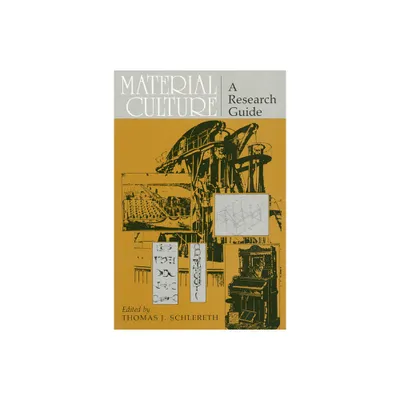Home
A Cognitive Ethnography of Knowledge and Material Culture: Cognition, Experiment, the Science Salmon Lice
Loading Inventory...
Barnes and Noble
A Cognitive Ethnography of Knowledge and Material Culture: Cognition, Experiment, the Science Salmon Lice
Current price: $129.99


Barnes and Noble
A Cognitive Ethnography of Knowledge and Material Culture: Cognition, Experiment, the Science Salmon Lice
Current price: $129.99
Loading Inventory...
Size: Hardcover
*Product Information may vary - to confirm product availability, pricing, and additional information please contact Barnes and Noble
This cognitive ethnography examines how scientists create meaning about biological phenomena through experimental practices in the laboratory, offering a frontline perspective on how new insights come to life. An exercise in the anthropology of knowledge, this story follows a community of biologists in Western Norway in their quest to build a novel experimental system for research on
Lepeoptheirus salmonis
, a parasite that has become a major pest in salmon aquaculture. The book offers a window on the making of this material culture of science, and how biological phenomena and their representations are skillfully transformed and made meaningful within a rich cognitive ecology. Conventional accounts of experiments see their purpose as mainly auxiliary, as handmaidens to theory. By looking closely at experimental activities and their materiality, this book shows how experimentation contributes to knowledge production through a broader set of epistemic actions.
In drawing on a combination of approaches from anthropology and cognitive science, it offers a unique contribution to the fields of cultural psychology, psychological anthropology, science and technology studies and the philosophy of science.
Lepeoptheirus salmonis
, a parasite that has become a major pest in salmon aquaculture. The book offers a window on the making of this material culture of science, and how biological phenomena and their representations are skillfully transformed and made meaningful within a rich cognitive ecology. Conventional accounts of experiments see their purpose as mainly auxiliary, as handmaidens to theory. By looking closely at experimental activities and their materiality, this book shows how experimentation contributes to knowledge production through a broader set of epistemic actions.
In drawing on a combination of approaches from anthropology and cognitive science, it offers a unique contribution to the fields of cultural psychology, psychological anthropology, science and technology studies and the philosophy of science.


















